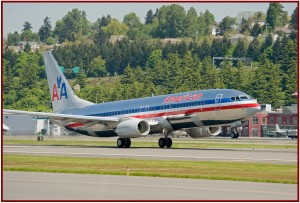The U.S. Department of Transportation’s Federal Aviation Administration – FAA – has announced a legal settlement with Boeing Commercial Airplanes that resolves several pending and potential legal violations. The deal requires Boeing to improve its internal processes, with audit teams reporting directly to BCA’s Vice President of Quality.
It’s a sweeping legal agreement that demands audits of Engineering, Supplier Management, Production, Modification, Repair and Customer Support at all BCA sites. Some automotive aspects of this agreement are already covered under the Tread Act that was the result of the deadly Firestone tire separation debacle in the industry.
However, this appears to be a far more detailed regulatory shift that requires “corrective action” to suppliers. How this all plays out remains to be seen – the devil is in the details, as always. Consider that the ‘corrective action’ Honda used with the deadly defective airbag supplier Takata was simply to fire Takata as a supplier going forward. In this single instance, it works. Across the entire auto industry, it’s impossible to fire all suppliers if there is a serious legal, safety or regulatory problem.
“Boeing has agreed to implement improvements in its design, planning, production and maintenance planning processes,” said U.S. Transportation Secretary Anthony Foxx, the head of an agency that has broad regulatory powers over the auto industry. The pact settles two so-called ‘initiated cases’ and 11 other matters that were opened during the last several years.
The first FAA case involved BCA’s “tardiness” in developing information for the installation of fuel tank flammability reduction equipment on Boeing 747 and 757 aircraft.
The second case – directly relevant to the auto industry – involved the company’s “insufficient corrective action” after discovering that a supplier had been providing incorrectly shaped fasteners.
BCA has now committed to meeting specific performance targets. DOT says they are designed to enhance BCA’s early discovery and self-disclosure of potential regulatory compliance problems, as well as the timely development and implementation of effective corrective actions.
Under the Boeing agreement it also must make an immediate payment to the United States Treasury in the amount of $12 million. BCA still faces larger penalties for failing to follow through on its commitments.
BCA’s obligations include:
• Improved Management Oversight and Accountability
• Implement the Safety Management Systems (SMS) plan BCA has developed to meet internationally accepted standards, throughout the company’s activities.
• Use the FAA’s safety analysis modeling, in addition to BCA’s proprietary risk modeling, to assess all identified compliance issues.
• Comply with a new Regulatory Compliance Plan, which requires BCA to assign each compliance matter to a manager-level employee for resolution and accountability.
• Require review of the regulatory compliance performance of BCA managers.


